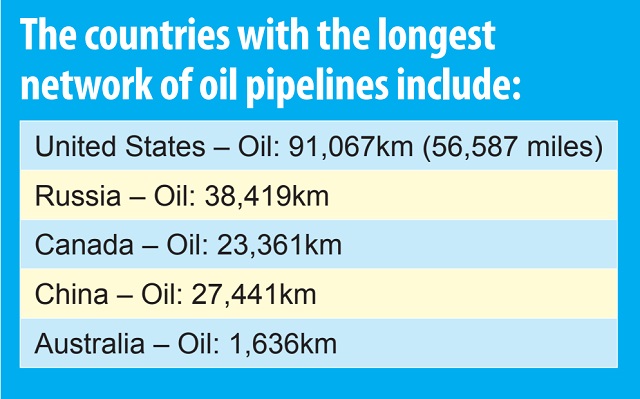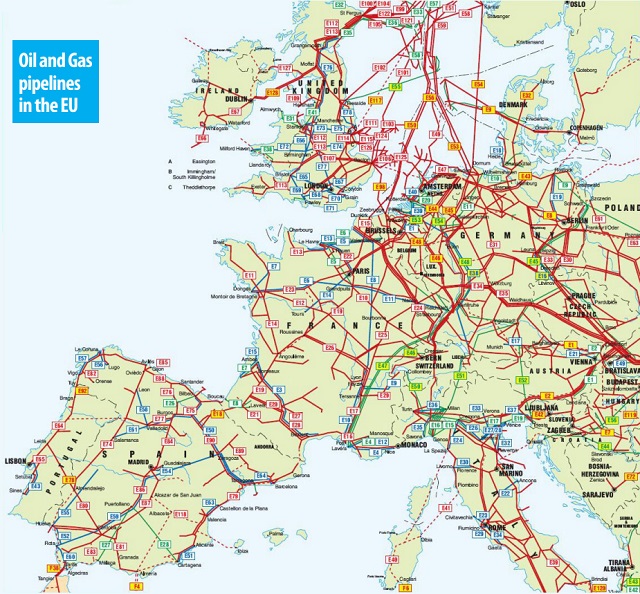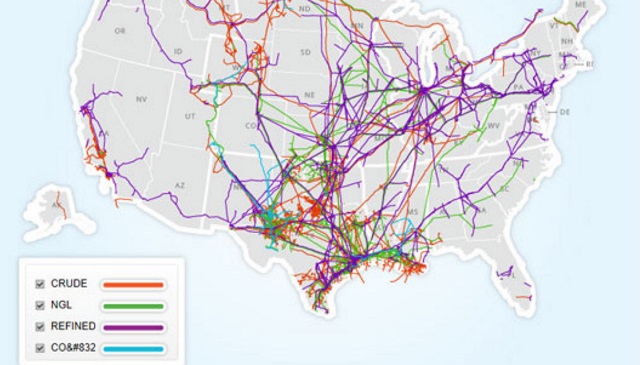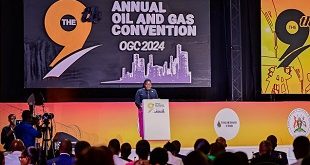
Don’t dismiss it. Disprove it
Kampala, Uganda | JOSEPH WERE | Days after the European Union passed a resolution condemning ongoing investment in fossil fuels in Uganda, the basis for the censure remains unclear.
The Lake Albert Development Project consists of several partners, with the French multinational oil company TotalEnergies (Total) as the main investor, together with the China National Offshore Oil Corporation (CNOOC), the Uganda National Oil Company (UNOC), and the Tanzania Petroleum Development Corporation (TPDC).
They are jointly involved in the East African Crude Oil Pipeline (EACOP)project which was launched on Feb. 01, 2022 and is planned to be complete by 2025.
TotalEnergies has started two major oil production projects in Uganda, one of which is the Tilenga project, which will involve drilling some of the oil wells within the Murchison Falls National Park, which is a protected area.
The projects have run into opposition from environmentalists claiming that disaster will come from the oil production activities, together with the construction of the 1,443km long EACOP, which when completed will be the longest heated crude oil pipeline in the world.
UP to 20 banks and 13 insurers have reportedly backed off the projects following activists’ pressure. They reportedly include Allianz Group, Swiss Re, HSBC, and BNP Paribas. But Santander, BBVA, Bank of America, and Goldman Sachs and others remain.
Several top international reinsurers, including Munich Re, Swiss Re, Hannover Re, SCOR, and TALANX have also said they will not reinsure the EACOP. But others, including Chaucer, Beazley, AEGIS London, AIG, Aspen, Chubb, Liberty Mutual, Marsh McLennan, and Lloyd’s.
Standard Bank Group of South Africa, the parent company of Stanbic Uganda, is the lead financial advisor to the projects, and other lenders are expected to include Sumitomo Mitsui Banking Corporation of Japan and the Industrial Commercial Bank of China.
The main promoters of the project remain focused.
“D-Day means Day of Departure, and to us, it’s day of departure to work,” said TotalEnergies Chairman and Chief Executive, Patrick Pouyanné, at the announcement of the Final Investment Decision in February.
President Yoweri Museveni has led those supporting the project.
“This project is a very important one for this region. You hear that for the next few years, Mr. Pouyanne (Total Energies Chief Executive) and CNOOC people are going to put in US$10 billion in this effort. This money will boost our economy,” he said at the FID signing.

Grounds of censure
The EU’s joint motion for a resolution alleges violations of human rights in Uganda and Tanzania linked to investments in the fossil fuels project. It lists seven grounds for the censure. But the long list obscures rather than clarifies the EU’s dissatisfaction.
The EU resolution speaks of general lack of compliance with human rights standards and human rights violations around the East Africa Crude Oil Pipeline (EACOP) project in Uganda and Tanzania, wrongful imprisonment of human rights defenders, arbitrary suspension of NGOs, eviction of hundreds from their land without fair and adequate compensation, and blocking human rights activists, journalists, and civil society groups from accessing the oil activity region.
Based on this, the motion calls on the EU and the international community to exert maximum pressure on Ugandan and Tanzanian authorities, as well as the project promoters and stakeholders, to protect the environment and to put an end to the extractive activities in protected and sensitive ecosystems, including the shores of Lake Albert.
It wants Ugandan and Tanzanian authorities, as well as the project promoters and stakeholders to commit to using the best available means to preserve the culture, health, and future of the communities affected.
It also wants them to explore alternatives to the project in line with international climate and biodiversity commitments and resolve disputes it says should have been resolved prior to the launch of the project.
It “urges TotalEnergies to take one year before launching the project to study the feasibility of an alternative route” for the crude oil pipeline.
The EU motion argues this will enable Ugandan and Tanzanian authorities, as well as the project promoters and stakeholders “to better safeguard protected and sensitive ecosystems and the water resources of Uganda and Tanzania, limiting the vulnerability of the watersheds in the African Great Lakes region, which is a critical resource for the region.”
Finally, the EU motion says Ugandan and Tanzanian authorities, as well as the project promoters and stakeholders should explore alternative projects based on renewable energies for better economic development.
By the time we went to press, the Uganda and Tanzania governments and the other stakeholders and promoters of EACOP had not reacted to the EU motion.
Only the Uganda parliament led by Deputy Speaker Thomas Tayebwa had spoken out in tough terms against the EU motion.
“Uganda is a developing country, and a sovereign state that has its unique development needs and priorities. I, therefore, call upon the European Union Parliament to withdraw the motion for a resolution that is against the UN Charter that provides for Uganda’s right to self-determination and sovereignty over its natural resources,” Tayebwa said.
“This motion seeks to curtail the progress of Uganda’s Oil and Gas developments and by extension, the country’s socio-economic growth and development,” he added, “The resolution represents the highest level of neo-colonialism and imperialism against the sovereignty of Uganda and Tanzania.” He was backed by several MPs. Bugiri Municipality MP, Asuman Basalirwa (JEEMA) advised parliament to recommend that the executive summon the Head of the EU Delegation in Uganda, Ambassador Jan Sadeka, “to explain the resolution.”
The EACOP is planned to be a 1,445 kilometre heated pipeline that will transport crude oil from the Albertine Graben in Uganda to the coastal port of Tanga in Tanzania for onward shipment to the international market.

Pipelines safe
It is not clear why the EU remains opposed to Uganda’s project.
The lack of clarity is partly because, according to the Global Energy Monitor, there were at least 2,381 operational oil and gas pipelines distributed across some 162 countries around the world, and none of them are being blocked.
The combined length of these pipelines is more than 1.18 million km enough to circle the Earth 30 times. The EACOP pipeline appears of little consequence as it would add just 0.1% length to this figure.
There is the fact that Europe, which is fighting the EACOP, has about 27% of the total length of the world’s pipelines. The world’s longest oil pipeline; the Druzhba Oil Pipeline, with a length: 5,100km and capacity for 1.4 million barrels per day, and one of the largest oil pipeline networks in the world are in Europe.
Before the Russian invasion of Ukraine, the Druzhba Oil Pipeline carried oil from the eastern part of Russia to points in Ukraine, Belarus, Poland, Hungary, Slovakia, the Czech Republic and Germany.
All the EU countries with the exception of Denmark are net oil importers and a significant portion of it is moved by pipelines the rest by tankers.
An EU GREEN PAPER titled ‘Towards a secure, sustainable and competitive European Energy network oil infrastructures: An assessment of the existing and planned oil infrastructures within and towards the EU’ warned against increased use of tankers.
“Construction of new pipelines can provide environmentally viable alternatives to increased tanker transportation as well as a contribution to security of supply through new diversified routes,” it said.
The American Petroleum Institute (API), which represents all segments of America’s oil and natural gas industry and was formed in 1919 as a standards-setting organization with over 700 standards to enhance operational and environmental safety, efficiency and sustainability, says “pipelines are safe, efficient and, because most are buried, largely unseen.” America has 2.4-million- miles of underground pipeline system.
It says the challenge of meeting the world’s growing need for energy while simultaneously ushering in a lower-carbon future is massive, intertwined and fundamental. It says governments, industries, and consumers must rise to seize the opportunity together.
It points at the United Nations projection that the global population will increase to nearly 10 billion in 2050, and energy demand will grow with it – “and grow the fastest among many emerging economies that struggle today to alleviate energy poverty.”
“The world needs solutions that advance human and economic development, enable emerging economies to progress while also developing their own domestic resources and satisfy global energy needs in ways that are compatible with reducing greenhouse gas emissions and achieving environmental progress,” it says.
API has an environment framework that says: “We share with global leaders the goal of reduced emissions across the broader economy and, specifically, those from energy production, transportation and use by society. To achieve meaningful emissions reductions that meet the climate challenge, it will take a combination of policies, innovation, industry initiatives and a partnership of government and economic sectors.
“The objective is large enough that no single approach can achieve it,” it says.
Another organisation, Concawe, which has all 38 companies that operate petroleum refineries in the European Economic Area as members, says on its website that “pipelines are a long-established, safe and efficient mode of transport for crude oil and petroleum products.”
Concawe members range from multi-national oil and gas companies that operate in exploration and production, refining, and chemicals, to European regional and National Companies operating one or more refineries in the EU, UK, Norway or Switzerland.
Pipelines are used both for short-distance transport (e.g. within a refinery or depot, or between neighbouring installations) and long distances.
An extensive network of cross-country oil pipelines in Europe meets a large proportion of the need for transportation of petroleum products.
Citing the International Energy Agency (IEA) warning in a 2021 report that limiting global warming to 1.5°C which would prevent climate change’s most destructive impacts would require new oil and gas development to stop immediately, the EU warns that the extraction of oil in Uganda would generate up to 34 million tonnes of carbon emissions per year.
Deputy Speaker of Parliament Tayebwa noted that the EU accounts for 25% of global emissions, with 10% of the world’s population, while Africa with 20% of the world’s population is responsible for only 3% of global emissions.

Doomsday scenarios
The EU motion also paints a doomsday scenario about the pipeline.
“EACOP oil spills will occur over the lifetime of the project,” it says.
Despite the forceful rejection of the EU motion, it is clear that rather than dismissing it, the governments of Uganda, Tanzania, and the other stakeholders and promoters of EACOP need to disprove it.
The EU motion cites a Jan. 24, 2022 communication by the four United Nations Special Rapporteurs on the situation of human rights defenders alleging arrests, intimidation and judicial harassment of human rights defenders and non-governmental organisations (NGOs) working in the oil and gas sector in Uganda.
It says human rights defenders, journalists and civil society actors have been reported to have suffered criminalization, intimidation and harassment. It names Maxwell Atuhura, an environmental rights defender and field officer in Buliisa for the NGO Africa Institute for Energy Governance (AFIEGO), who suffered a break-in and arbitrary arrest.
It names Federica Marsi, an Italian journalist, who was arbitrarily arrested on May 25, 2021, Joss Kaheero Mugisa, the chairman of the NGO Oil and Gas Human Rights Defenders Association, who spent 56 nights in jail without being sentenced by a court, Robert Birimuye, a leader of people affected by the EACOP project in Kyotera District, who was arbitrarily arrested, Yisito Kayinga Muddu, coordinator of Community Transformation Foundation Network – COTFONE, whose house and office were broken into on the same day, and Fred Mwesigwa, who testified in the case against TotalEnergies in France and was subsequently threatened with murder.
The EU motion cites environmental risks that were noted by the Netherlands Commission for Environmental Assessment in its ‘Advisory Review of the resubmitted Environmental and Social Impact Assessment for the EACOP.’ It highlighted, in particular, that the proposed technique for water and wetland crossings (open trench) has the potential for significant negative impacts, particularly in wetlands.
The EU motion says the construction and operational phases of the oil and gas projects are expected to cause further serious adverse impacts for communities within the oil extraction and pipeline areas, including jeopardizing water resources and irremediably harming the livelihoods of farmers, fisherfolk and tourism business owners who depend upon the region’s rich natural resources. It says the offshore facilities of EACOP on the Tanzanian coast will be built in a high tsunami-risk zone, endangering protected marine areas.
These cases cannot be dismissed by parliament or the government. The concerned authorities must instead pledge that they will not occur or re-occur.
****
 The Independent Uganda: You get the Truth we Pay the Price
The Independent Uganda: You get the Truth we Pay the Price



Hypocrisy and envy at its highest form is here on display by EU.
EACOP should be respected.
Dear editor
Good read for your well researched article but disappointed you didn’t include a link to the eu report for neutrality and factual information: https://www.europarl.europa.eu/doceo/document/B-9-2022-0408_EN.html
Just to mention there is a lot info previously invisible to Ugandans for decision making and consent as would be the case in a normal functioning democracy. ‘The drilling of more than 400 dwells, including 132 at the heart of the Murchison Falls national park, the oldest protected area in Uganda’, is likely to be a concern to many Ugandans and huge loss to the tourism industry.
The oil is to transported in the ‘longest heated’ pipeline in the world (at c.50deg centigrade). ‘The pipeline will go across 10 districts and will take up 2740 acres of land including several natural reserves which are home to protected and endangered wildlife; whereas in total, nearly 2,000 square kilometers of wildlife habitats will be at risk because of the East African Crude Oil Pipeline-EACOP; whereas this route was selected by the Ugandan government due to its lower cost compared to an alternative route to Lamu in Kenya’, according to the report.
The Speaker’s comments are perplexing and may be taken in context of a ‘third world reaction’- colonialism and racism accusations. His excellency has avoided a direct confrontation- well aware of the generous handouts in euro€€€ billions in form of budget support for well over 35 years to prop up his government.
The inclusion of Tanzania is interesting as the new president-Rais Samia Suluhu is moving full speed towards easing the instruments of a police state by the release of some political opponents ( including 10 Sheikhs from Unguja- Zanzibar), and encouraging press freedom as far as human rights are concerned. But Tanzania is yet to publish any environmental impact assessment it has undertaken to address the EU concerns.
The government may have been its worst enemy by refusing access to an EU fact finding delegation to the region- implying it isn’t being transparent to the world and its citizens. This may have put off foreign investors including export credits, and encouraged several law suites in Paris to the French company- TotalEnergies over human rights and the environment breaches.
Ug and TZ governments have each 15% share in the EACOP project – should take note and respond fully to the report including : ‘EU recommends increasing scrutiny of Uganda and Tanzanian’s fiscal management and transparency; urges the Commission and the European External Action Service to continue conducting systematic reviews of EU budget support programmes where there is a risk of funds being diverted for use by the Ugandan and Tanzanian authorities in activities which may abet human rights abuses and target activists’.
Its quite annoying how you are focusing on the eatablished and expected damages and forego the benefits of this EACOP project to the E.Acommunity . The asset value of this oil and gas project is twice bigger than our economy. 116 b usd vs 45.7 b usd. After analysing and reading the EU resolution its all based on politics and trying to hinder economic and socio development in Africa
These are the friends of Bobi Wine acting on his recent requests.
Just seven months ago, in February, he went to the EU Parliament in Brussels requesting that they use economic sabotage against Uganda… basically inviting indirect or passive foreign meddling in Uganda’s affairs and inviting his foreign allies to undermine Uganda’s sovereignty (in the short term and the long term)… with regime change being the end that justifies the means (this, according to his unpatriotic strategy, selfish power-hungry motives, and apparent lack of ideology).
Behaving like the woman who falsely claimed to be the baby’s mother in The Judgment of King Solomon (1 Kings 3:16-28), “Go ahead and cut him in half.”
Willing to cut Uganda in half just to reach Entebbe.
Please pay attention and vote wisely when the time comes.
In the meantime, please pray for Uganda… pray especially that all our leaders including opposition may gain more wisdom and use it for the benefit of all Ugandans.